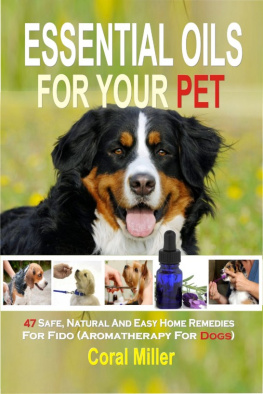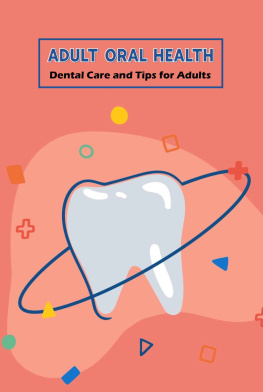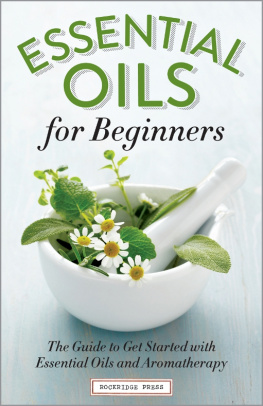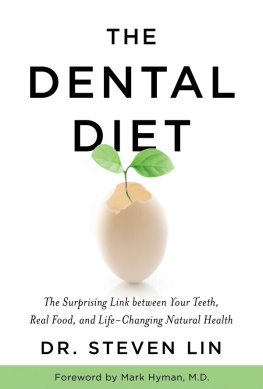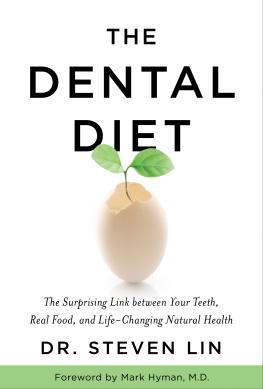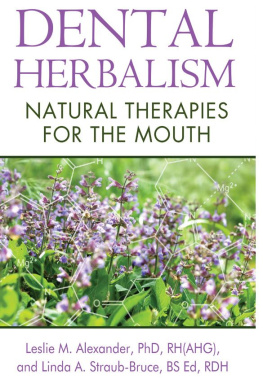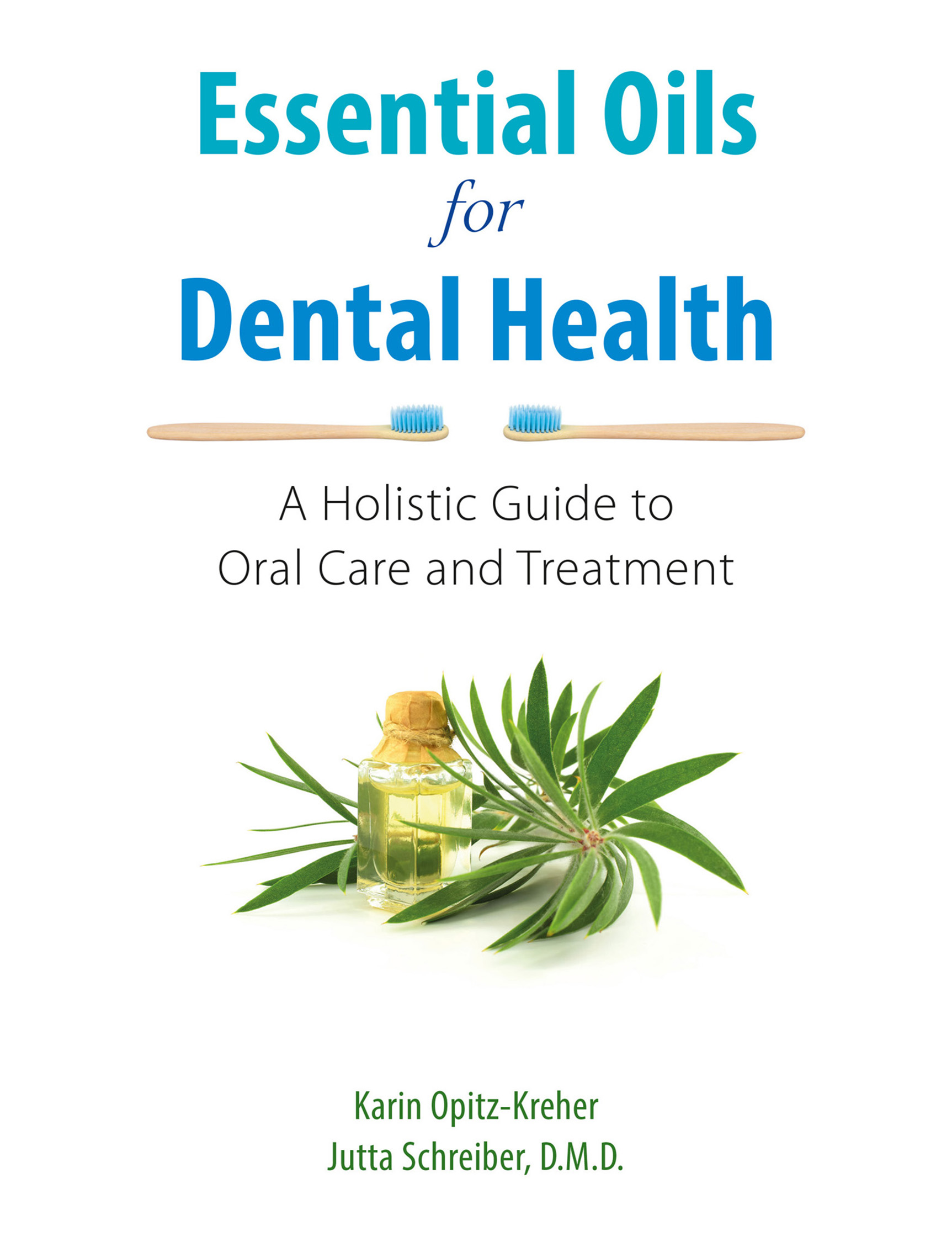
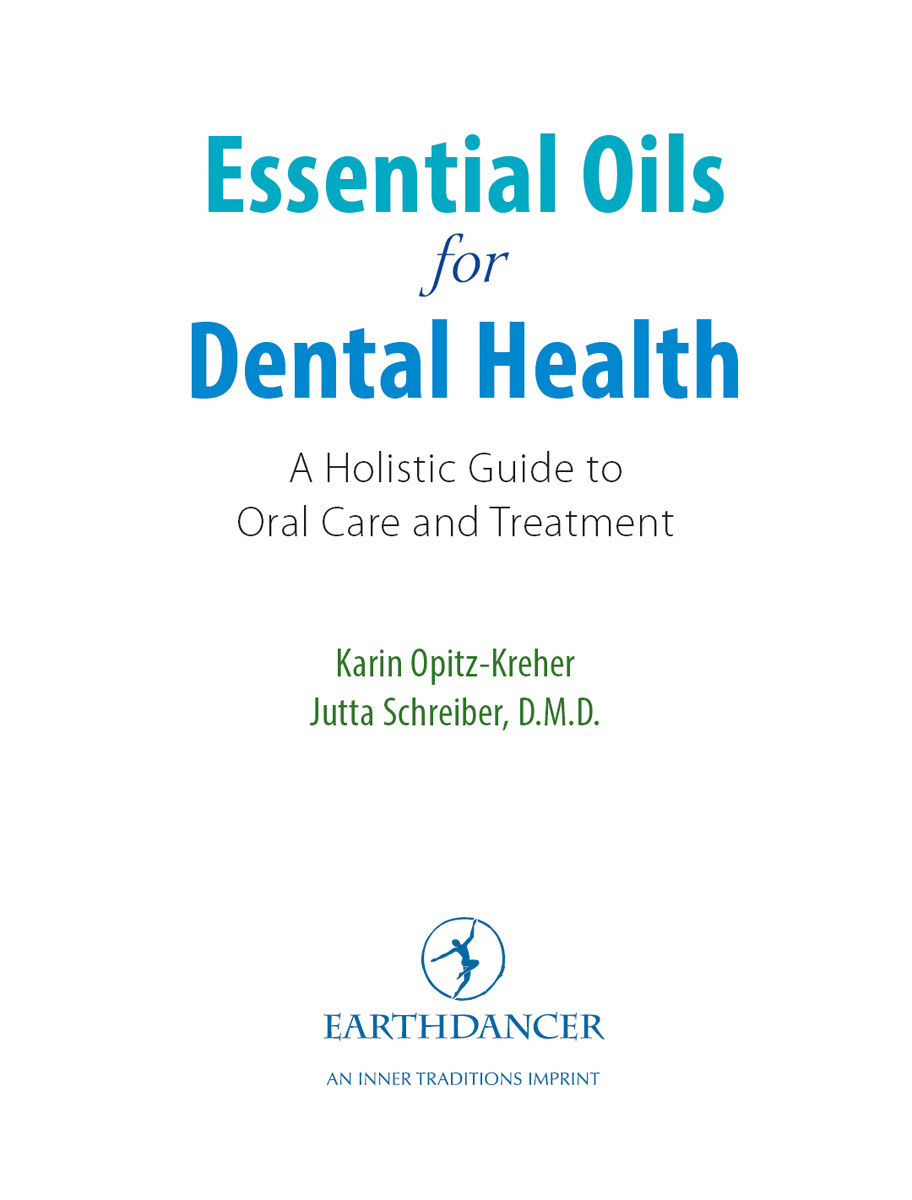
Contents
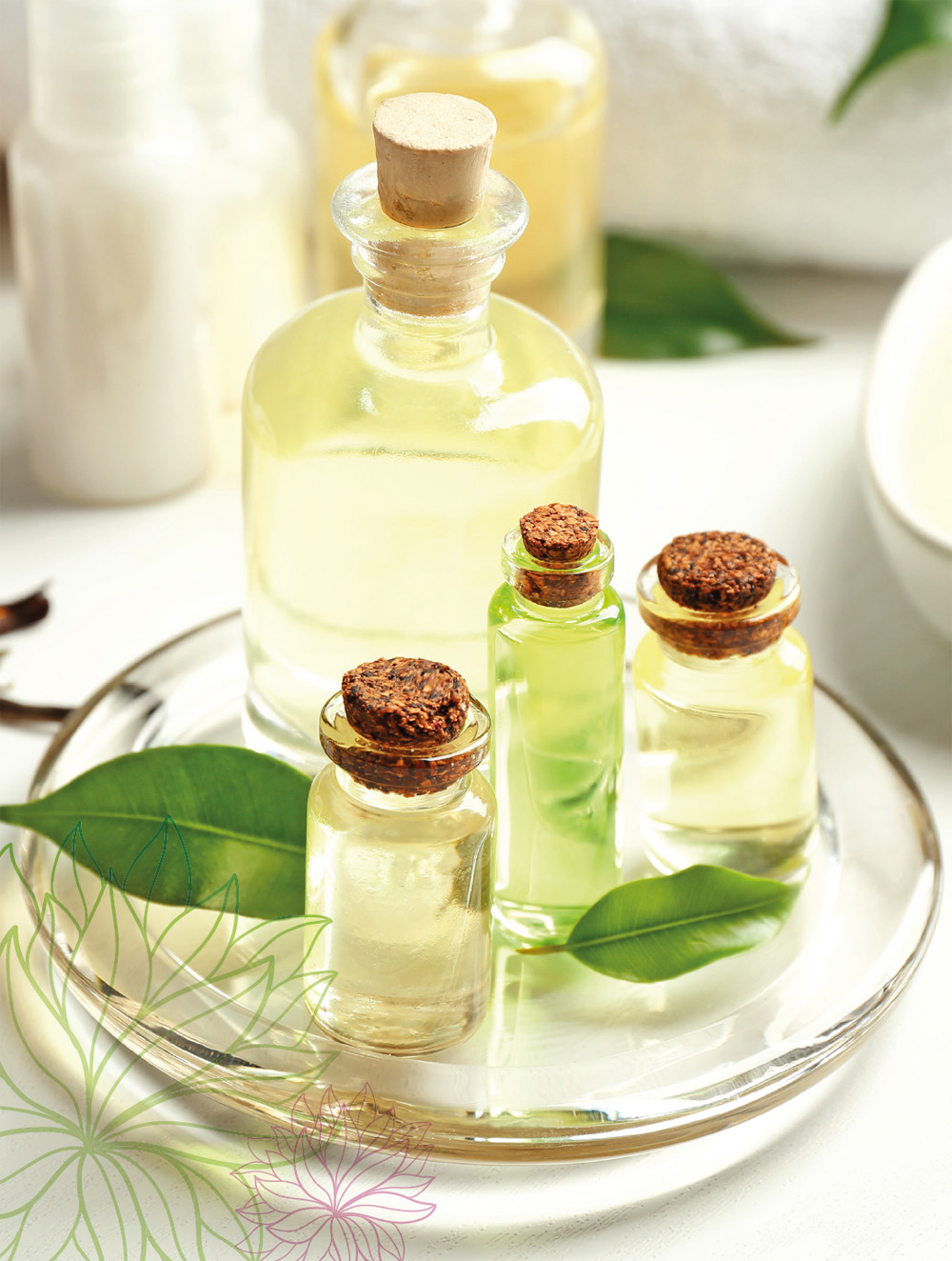
Introduction
I am surrounded by gold rings, beautiful bracelets, and shiny marbles in every color of the rainbow. Bouncing balls and yoyos fly in every direction, and small shiny cars race about.
My name is Jutta and these are my first memories of visiting a dentist.
Over the years I have realized that it was this toy box full of treasures, in which I was allowed to rummage after every visit, that drew me into this magical world, but it also had a strong and long-lasting influence on the way I thought about the dental clinic. I was always relaxed and looked forward excitedly to my dental appointment on each visit.
I also associate a very particular smell with these occasions, and it wasnt the typical odor of the nurses office at school. Instead, I remember it as fruity and woody. Sadly, the dental surgery has long since closed, and I could never quite identify the precise source of the smell, but I remain convinced that emotions are closely connected with scents.
As a child born during the Second World War, my mother had always been unhappy about her teeth, which is why she always made sure that her children looked after theirs. Sitting in the waiting room almost began to feel like a weekly event. I had fillings, a few healthy teeth were pulled at an early age to make room for the others, and I lived with a range of different braces for many, many years.
I would sometimes hear my girlfriends complaining about being so scared of the dentist, but this was something new for me. While it was true that my whole mouth had always been extremely sensitive, and indeed still is, the routine nature of any dental appointments had always left a positive impression on me.
Indeed, so positive was the impression that I made dentistry my profession. I have been working in my own clinic for three decades now and have specialized in holistic dentistry for many years. I examine teeth and the masticatory system, not in isolation, but instead in the context of the whole body, mind, and spirit.
I have been excited about essential oils and their amazing applications for a number of years, and I couldnt imagine my clinic without them now. I hope you too will develop a new awareness and understanding of your mouth. Your lips, cheeks, tongue, palate, and teeth all deserve close attention. Wouldnt it be nice to feel relaxed and positive about your mouth? Concentrate on running your tongue around the whole of your inner cheeks, stroking the inside and outside of each individual tooth. Can you do it right away, without any difficulty? Over the years, the tongue sometimes becomes a little less agile, but with practice it can regain mobility. You will then notice changes in the mouth much more quickly and be able to take the appropriate action.
Suck in your cheeks and then blow them out again. Roll or purse your lips. Try pouting. This kind of short facial gymnastics session also helps to prevent the formation of wrinkles. Start your mouth awareness program today, and by getting to know your mouth in this playful and relaxed way, you will find that you are much calmer when you go to the dentist.
Unlike many of the current medicines in use in dentistry, essential oils are entirely natural. They are strong, potent substances and yet can be used without placing any unnecessary strain on the rest of the body.
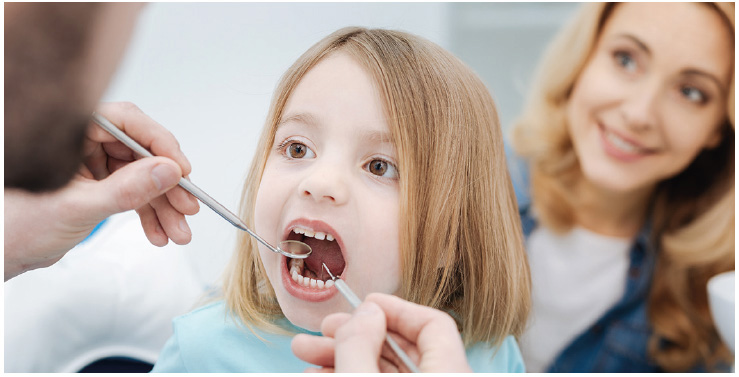
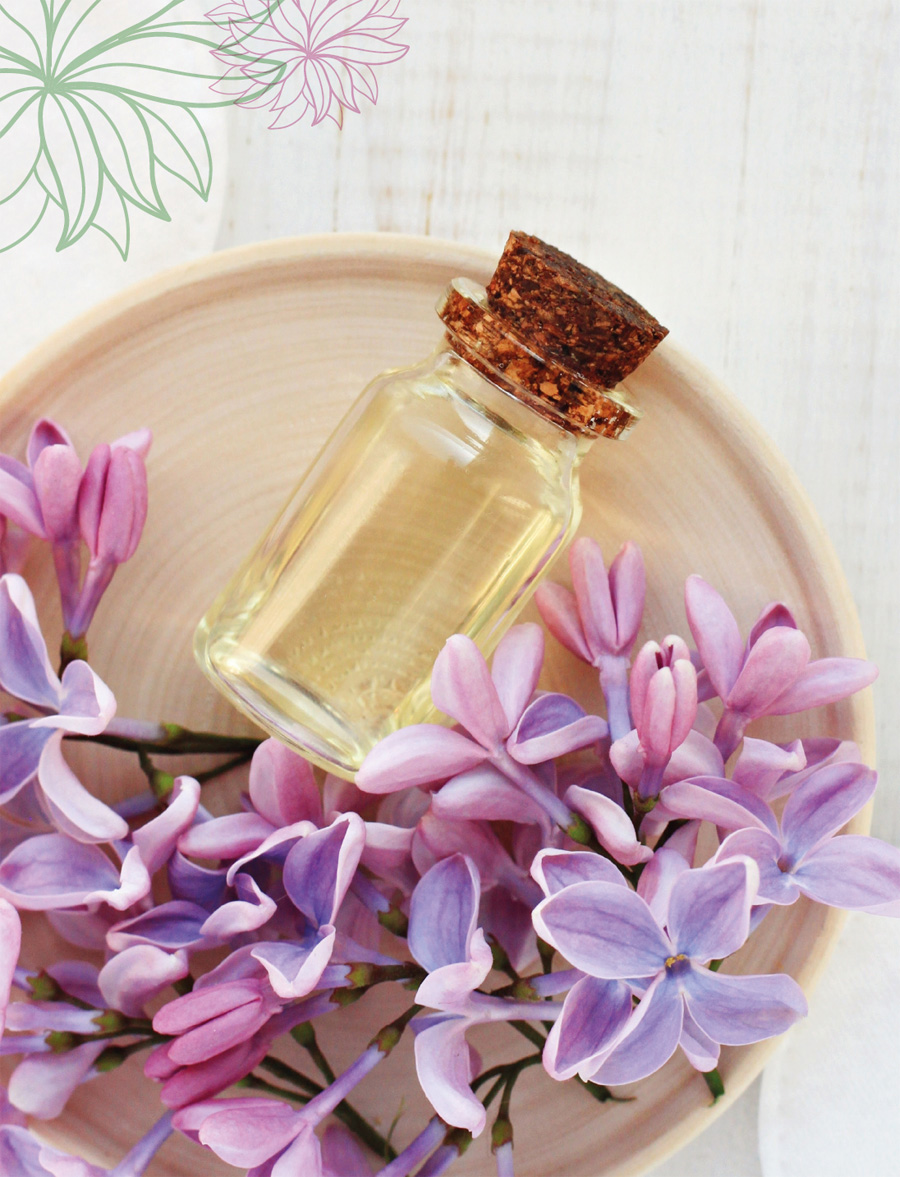
The Relationship between Essential Oils and Teeth
We have been taking advantage of the calming powers of essential oils in my clinic for twenty years now (writes Jutta), and for me its the most natural thing in the world to have some relaxing citrus oil in the surgery. The first thing many patients notice when they walk into a dental clinic is its sterile smell, so its no wonder that those who had bad childhood experiences at the dentist are immediately transported back in their memory and feel an associated chill down the spine.
If a patient is extremely tense, treatment under general anesthetic may be the only option, but I have firsthand experience of the difference essential oils can make in this regard. To be met by the welcoming, sunny fragrance of oranges as a patient opens the clinic door soon works its magic, putting a relaxed smile on their face before they even know it.
Initially, we mostly used essential oils for aromatherapy in the clinic, but over the last few years they have been increasingly used to help prepare and support a treatment. Essential oils can be applied externally but can also help with internal oral hygiene, and its easy to make use of their positive properties in your own home.
It is my aim through the course of this book to introduce you to a number of essential oils that we use in our clinic both extensively and on a daily basis, and that can also be used at home to boost dental health or prepare for a visit to the dentist.
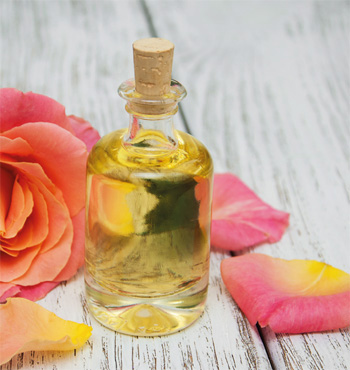
It is vital that the essential oils used are naturalsynthetic scent molecules will certainly dock with the appropriate receptor cells, but they are not natural and when absorbed by the body, they put an enormous strain on the liver.
How we smell things
We are constantly being subjected to the odor of the things around us, often without realizing it, and yet the process of smelling something is actually fairly complex. Lets assume we can smell the intoxicating scent of a rose.
When we inhale, odor molecules reach the olfactory epithelium, a specialized tissue located on the roof of the nasal cavity, nearly 3 inches (7 cm) above and behind the nostrils. This tissue contains millions of olfactory receptor neurons, each one of which recognizes only very specific molecules.
When a receptor cell encounters a matching molecule, it triggers an electrical impulse that is transmitted (via the olfactory nerve) to the olfactory bulb, of which we have two, one above each nostril.
After further processing, the olfactory bulbs send the information to the brain, more specifically to the thalamus and limbic system (hippocampus and amygdala), where it plays a role in emotions, long-term memory, and learning.
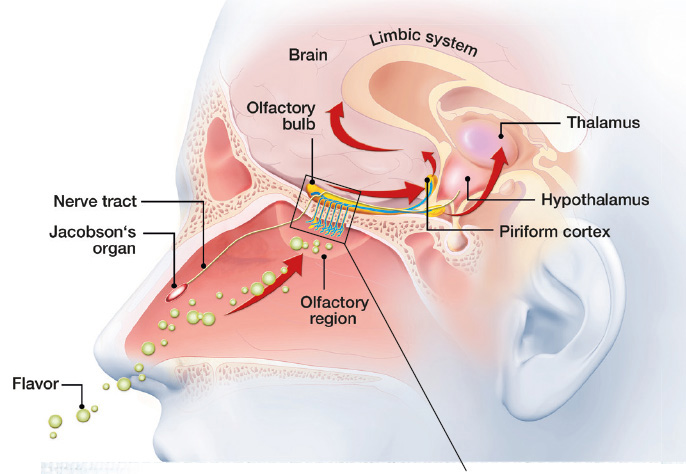
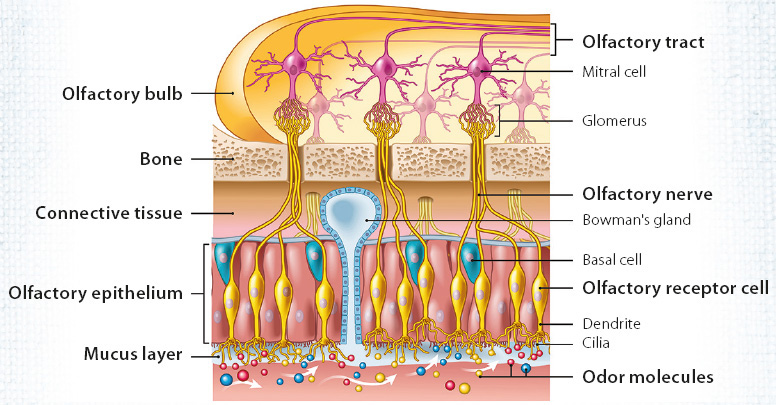
When we associate a pleasant memory with a particular scent, it helps to create emotional harmony. But when we smell burning, for example, our internal defenses kick into action and cause us to seek safety.
When our sense of smell is healthy, we are constantly perceiving odors and unconsciously evaluating whether we are safe or in danger.
If your dentist does not use essential oils to create a pleasant environment, take the matter into your own hands by putting a small drop of orange oil on your palms, rubbing them together, and then cupping both hands over your nose to breathe in the scent. If it is a high-quality essential oil, you will notice a change immediately. Everyone reacts slightly differently to particular scents, but most people associate the odor of oranges with freshness, sunshine, relaxation, and vacations.
Next page

